NASAWatch on CGTN – Long March 5, Moon, Mars
 Keith’s note: I was on on CGTN at 12:45 p, EST today to talk about China’s launch of its Long March 5 rocket and what it means for China’s plans to build a space station and exploring the Moon and Mars.
Keith’s note: I was on on CGTN at 12:45 p, EST today to talk about China’s launch of its Long March 5 rocket and what it means for China’s plans to build a space station and exploring the Moon and Mars.
My friend Leroy Chiao was on CGTN too:


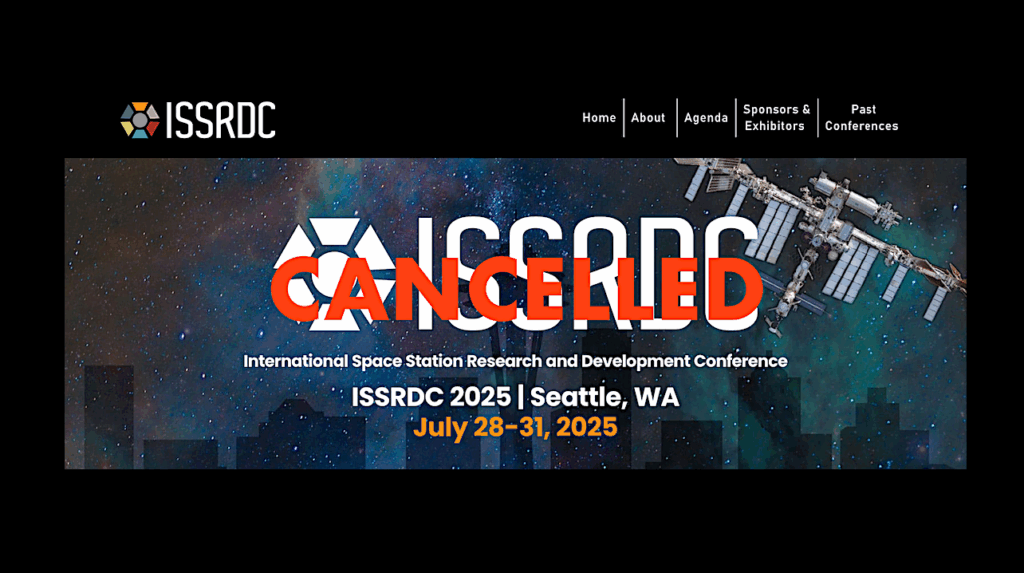
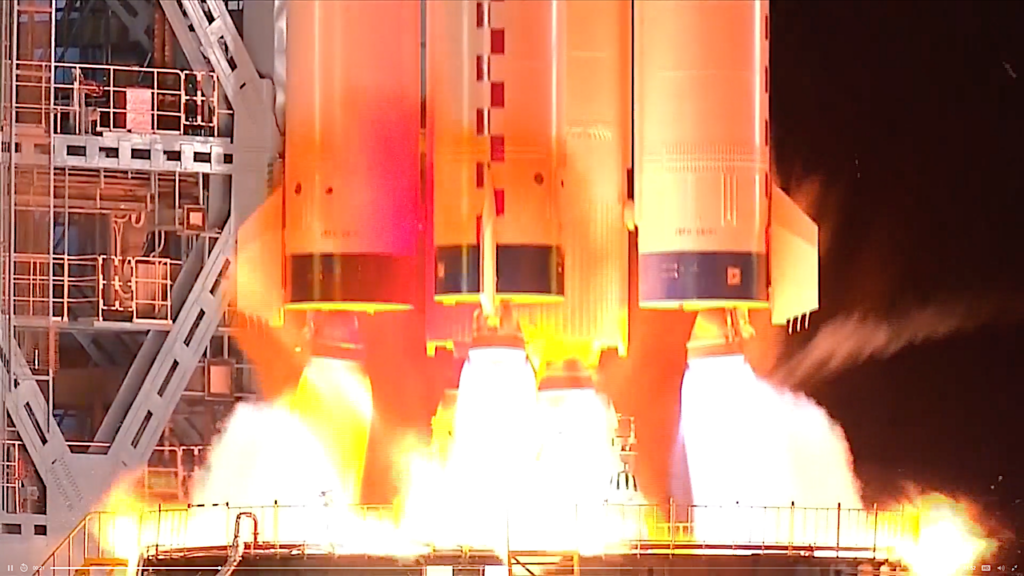

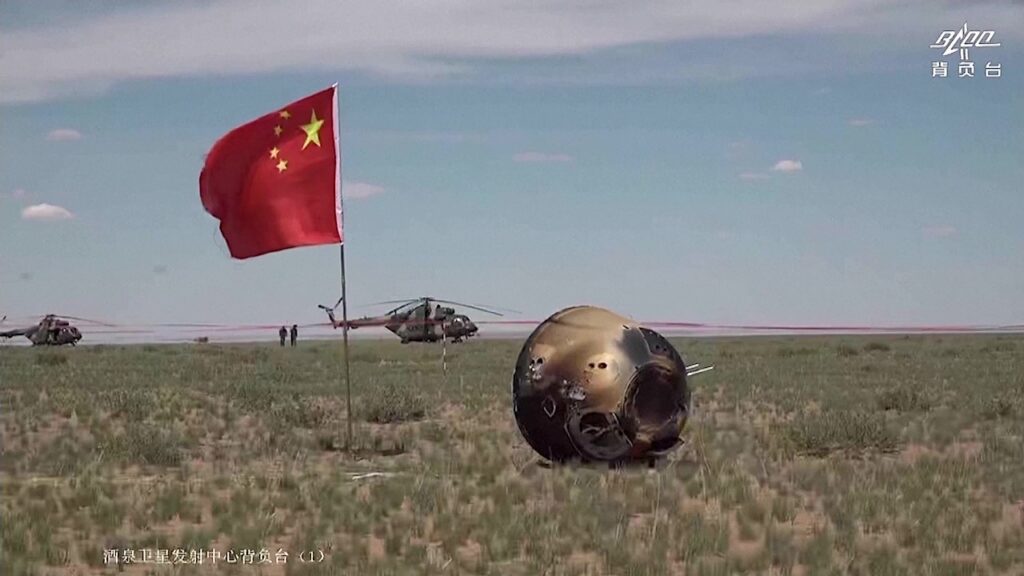
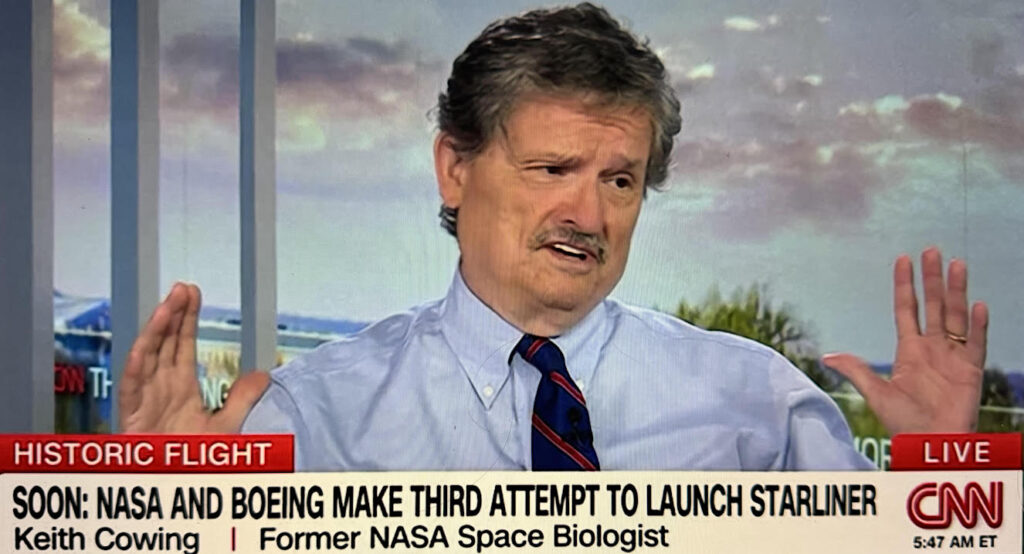
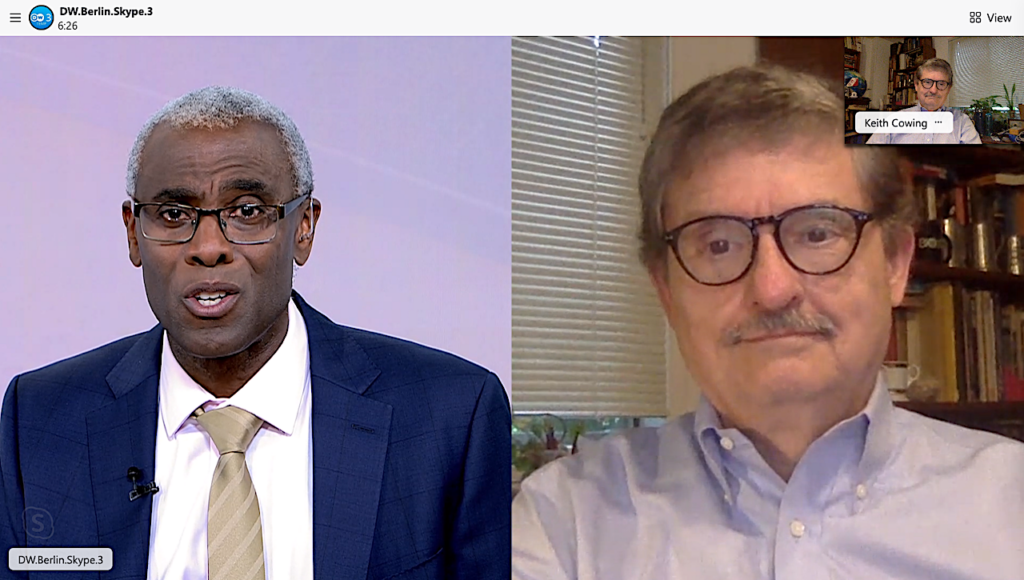

Excellent, succinct commentary as usual, Keith and Leroy! Well done.
Although the Russians we’ve met and worked with on the ISS have been individually good people, the original purpose of the Clinton/Gore administration to bring them into that program was to somehow divert their government from supporting rogue regimes like Iran and assisting their missile capabilities. This has proved illusory at best. The Russians, with a history that almost almost ends up with a dictator in charge, may yet evolve in the post-Putin era to a country with more freedom and individual liberty so it makes sense to keep them close for now and wait out Putin, who is more of a tinpot dictator that the Russian people in their inimitable fashion work around, and then be in a position to influence what follows. China, however, is a different case altogether. At this moment, its government is actively suppressing its people, including those in Hong Kong, in brutal, cynical fashion and there is no end in sight. Every thing it does is to expand the Communist party/ruling class’s influence across the world. It has moved into Africa in a big “blood diamond” way, buying governments with its huge wealth, and has taken away much of the African people’s ability to ever find prosperity. China steals technology when it can, buys it when it can’t, and has no problem with polluting its own land as well as the world with its grandiose building projects. It dumps products on the world market, killing jobs and therefore families in other countries. It exports illegal narcotics that destroy so many and tears at our social fabric. It kills its coal miners and other laborers with shoddy safety practices and just hires more when they die. China’s government is filled with schemers who do not shy from brutality to get what they want. Make no mistake, every aspect of their space program is designed to devolve more power onto these people and that government. It is not one I believe the United States should either join or assist in any way. We can cooperate where it makes sense, and encourage personal relationships, but we should make it a policy to keep that bloody government at arm’s length in space and all technological efforts until, at last, it falls because of its rotten core.
Good analysis. Don’t forget the millions China has put in concentration camps for just being Muslim. It is also the key driver of climate change putting out twice as much CO2 as the U.S. puts out. China has more coal power plants under construction than are currently operating in the West, both in China and in its “client” states. All legal under the Paris Accords. Hopefully the riots in Hong Kong, that are now also occurring on the mainland, are a sign of things to come that will bring an end to its regime. In the meantime the less we do business with them the better.
Can’t argue with the statements about China (other than that they’re pursuing policies not all that different from our own laissez-faire attitudes toward unrestrained capitalism in the second half of the 19th century), but the Clinton administration’s reasoning in the years immediately after the fall of the Soviet Union — when Russian scientists were tending potato patches because they weren’t getting paid and their families were eon the brink of starvation — behind partnering with the FSU on things like the ISS was to keep rocket and nuclear arms scientists on that job and not working for Libya, Iran, or North Korea. Libya went nuke-free before it imploded, Iran still does not have nukes (though the current administration appears determined to force them to), and North Korea just got ICBM-like launch vehicles a couple of years ago, rather than c. 2000. Those are pretty limited wins, but it’s better than three pariah regimes with nuclear payloads on ICBMs.
My comment mostly pertained to the Chinese space program and why we should not partner with them. In that regard, unrestrained capitalism, should such a thing exists in a Communist country, is not the reason but instead its brutal, cynical, and adventurism prone government. To be clear, in all my dealings with the Russians concerning ISS, nuclear weapons were of course never on the agenda so our agreements had no impact in that arena and therefore, except perhaps very incidentally, did not affect Libyan, Iranian, or North Korean nuclear ambitions. Taking the Russians as a partner on ISS did get some of their engineers over an economic hump but the usual corrupt suspects no doubt got more than their share which, being realistic, I think we were willing to let happen for the greater good. Your comment on the present administration pertaining to Iranian nukes is debatable but not for this forum. However, I will note Libya voluntarily ended its nuclear program and was rewarded by the previous administration (We came, We Saw, He died) by letting loose forces that ended with its dictator dragged out of a drain pipe and kicked to death. If there was ever any reason that would make a pariah regime want nukes, Colonel Gadaffi’s demise after he gave them up would qualify.
Not going to address every point you make, but nuclear weapons aren’t much use for putting down domestic uprisings, particularly when the enemy is at the gates of your capital city (as is the case in Libya now), or inside it. What they are good for is either stabilizing the entire world, or destabilizing parts of it, depending on who has the nukes, and whether its commanders are wise enough to disregard spurious early warning information (as happened in both the US and the Soviet Union in the bad, old days).
With China moving into space, and with their announced intent to send taikonauts to the Moon, it is also possible for potential conflicts over development of resources. Whether that could result in actual confrontations (assuming we actually get our astronauts, commercial or NASA to the Moon at the rate we are going), it is probably a good thing we have just created the US Space Force. Of course, it won’t be capable of warfighting for awhile, but the potential to protect freedom of space is there. (Air Force’s 14th AF has just been redesignated as Space Command!)
Actually the overall speed at which China is moving into space is far slower than the U.S. It’s just that the Chinese are focusing on the Moon while NASA is still looking for ET on Mars and beyond the Solar System.
That depends on what you mean by speed. If I define it by the time required to reach a destination (goal), then a snail’s pace towards a well-defined goal might be faster than racing around in a bunch of different directions.
China’s first group of “Taikonauts” from the 1960’s never got to fly because their first HSF program, along with a number of its scientists, was a victim of Chairman Mao’s Culture Revolution. They didn’t select any new Taikonauts until the late 1990’s, thirty years later, and since 2003 there have been only 7 flights (11 Taikonauts), the last in 2016. Compare that to the 14 years between between John Glenn and the Apollo-Soyuz flight, with project Mercury (6 flights), Gemini (9 flights), Apollo (11 flights), Skylab (3 flights) and Apollo-Soyuz (1 flight).
That is hardly a rush to space on the part of the Chinese. And as the past shows, a radical change in direction by the government could end the program overnight.
Recall that the same thing that happened to China’s first HSF program also happened in the 1400’s when China was exploring the Pacific and Indian Oceans. A new Emperor, with new ideas, took over and the ships were burned, the shipyards destroyed and there was a ban on large ships.
President for life Xi seems to like space flight, but who knows what direction the next president will take China in or what the conditions will be when they take office.
I’m quite familiar with the cultural revolution. My uncle worked with a Chinese scientist who got to go from a rising star, to the janitor cleaning toilets at his institute, to becoming the head of the institute. And I’ve heard the same story about several others. And don’t get me started about the Great Leap Backwards…
But China doesn’t seem to do the Moon-Mars back and forth we do with each new President (with asteroids thrown in for variety.) Sure, Emperor Xi won’t be around forever, but he’s definitely going to be around for more than four or eight years.
I am not counting on NASA to do it. My money is on SpaceX. They dirt is really flying down Texas way with the facilities they are building. It appears that Elon Musk spent Christmas there working on the redesign of Starship.
You’re forgetting what actually happened at the end of the Soviet Union. “Russia” didn’t just re-appear overnight as an organized nation – they were plunged into a decade of chaos and deprivation, which frankly we should have done better at recognizing would create a perfect environment for the re-emergence of a strongman dictatorship as they have now. During that decade there was a real concern that former Soviet scientists would be tempted by the terrible unemployment situation to sell their talents to hostile countries or (terrorist) entities looking to acquire missile and particularly nuclear capabilities. The latter could be advanced pretty far by almost anyone with a physics degree and an a few choice books. I was on a number of review panels during this time which were disbursing grant money to FSU scientists in order to keep them from going down that path. The amount they were asking for was chicken feed by American standards (like $10k-20k/yr), so we felt the return on investment was pretty high.
Well, we went to the moon because of the USSR, maybe we’ll go back because China. A sad reason hey, I will take it.
Define free.
Given the increasing wealth inequality and how the rules of upward mobility dont necessarily work the same for all, some would challenge your definition of freedom.
Don’t confuse the distribution of wealth in a society with freedom, they are not the same.
But I will give you a simple example of what freedom is. In the United States you are free to call the President and other government leaders names and make fun of them on social media and nothing happens to you. If you do it in China you will be quickly arrested and disappear into their prison system no matter your social status.
Actually, let’s confuse the distribution of wealth and personal freedom. Because they are correlated. The ability to exercise those freedoms is highly wealth-dependent. I don’t have an inherent problem with that (I have a right to freedom of speech, but if I want to say it on television, I have to buy an ad; I have a right to own a gun, but it would be ludicrous to expect the government to buy me one; etc.) But when some people have a thousand times as much money as others, that does mean some people have much, much more of an ability to exercise their rights. All people are equal, but some are more equal than others. In another context, I believe you wrote that our republic is a work in progress. I guess I see the dependence of rights on income, in combination with high wealth disparity, as something we need to work on.
You are assuming that all you need to run an advertisement is the money to pay for it, but media outlets often will refuse an advertisement if they consider it inappropriate. Remember the First Amendment only applies to government censorship not private media outlets.
By contrast the same high income disparity in wealth enables investment in risky startups that may lead to technological progress that make communication easier, most recently with the development of social media tools like Facebook, Youtube and Twitter. Access to each is basically free and if your message is good it will go viral. As a side note could you imagine the government funding them?
That incidentally is why I don’t get hung up on high income disparity. That money isn’t buried in the ground but goes into the economy to circulate in the form of investments, spending or to charities. The more money an individual has the more likely they are to fund observatories, preserve nature areas and invest in ideas too crazy for governments to put money in, like SpaceX and Tesla. The end result is to advance knowledge, technology and expand the economy.
Perhaps you don’t get hung up on wealth inequality because you’re not among the growing numbers of poor and working poor. Perhaps you don’t get hung up on wealth inequality because you don’t feel the functional inequality that having no or little money can create.
You do know that the percentage of those living in proverty is continuing to decline. From the U.S. Census
https://www.census.gov/libr…
Poverty Declined in 14 States and Puerto Rico in 2018
Craig Benson and Alemayehu Bishaw
September 26, 2019
“The poverty rate declined in seven of the 25 most populous metropolitan areas. It dropped for the fourth consecutive year in five of these seven areas. Poverty did not increase in 2018 for any of the 25 most populous metropolitan areas.”
Another measure is that the use of public transit is declining as more individuals are able to afford automobiles or rideshares.
https://www.economist.com/i…
Public transport is in decline in many wealthy cities
Remember what Dr. Deming said – “In God we trust; all others bring data.”
I don’t really like using poverty rates as a metric. It’s a very subjective and variable line. In reality, someone at the current poverty line has a higher standard of living than the best Windsor Castle could offer two hundred years ago.
I’d prefer to think in terms of the median income relative to that of the infamous “top one percent.” A great deal of policy and decision making is done by that one percent, and the income disparity does say something about how well they understand the concerns and problems of the average person. What does it take to get a child into a good university and then pay the tuition? If the answer is, “I’ll just buy the University a new building”, then you’re probably out of touch. If you only fly on a private jet, you probably don’t have a good idea of what twelve hours in basic economy is like. (And a cousin has recently told me how nice it is to have access to Intel’s “Nerd Birds”…)
Dragging this back to something vaguely relevant, I don’t expect poverty to be a concern in extraterrestrial colonies. Just simply survivable living conditions put a pretty solid lower limit on things. But I can easily imagine an ultra-rich upper class and janitors who are basically indentured servants and just getting by. That’s not like colonial America, where someone could run away from a bad job and set up a farm farther west. I can see the United States producing extraterrestrial colonies which aren’t actually much “freer” than certain “people’s republics.”
The Russians learned a great deal from us over the last 30 years. Some lessons, like the disciplined process and documentation for integrating payloads brought them into the 21st century; it’s too bad our own people did not adopt the same lessons, processes and documentation. The Russian support of their international partners has been outstanding. But the space program operates independdently, as an orphan and I doubt the space program will have any influence on their nation or politics. If anyone thinks that Hong Kong or the Chinese space program will have any influence on their leadership of politics, you ha ve a long wait ahead. The Chinese are expanding their technology and lifesty!e a d they are doing it succesfully. They know that space and the moon and planets are soon going to be a part of humankind world and legacy and they aim to be a major player. They ha v e the resources to lead the effort despite their centralized, planned processes and economy. NASA has been trying t to show such leadership but has been failing. The best bet is US commercial space, particularly Space X. They have been and can lead into the future. NASA ought to be willing to provide an assist. The Hong Kong situation is an aberration owing to that nation-states not too distant last, but it definitely is not how the C hi nese people think.
Then how do you explain the demonstrations on the mainland?
Very restricted support of Hong Kong protests. Protests in China are not uncommon but it’s usually about specific police or government actions and not about the need for personal freedoms. The people are genuinely indoctrinated enough they do not feel personal freedoms are needed or desired.
The also know they will be recorded on camera by the government and their participation will have consequences as a result. That is why you see all the illegal masks. But in essence this is just closing the safety value on a pressure cooker which means when it goes, it will go.
BTW did you see the new law that only allows religious services if they conform to the standards set by the communist party?
Let’s not get too high on a horse. The Bill of Rights is largely enforced by the courts, which means hiring lawyers, which takes money. If you look at the fund raising involved, our elections aren’t exactly “free.” And when it comes to “asking questions without fear”, well, that would depend on your manager and how much you fear losing your job. That’s not to say things couldn’t be worse, or that they are much worse in other countries. But we’ve got a whole lot of room for improvement, and forgetting that is the best way to make sure we don’t improve.